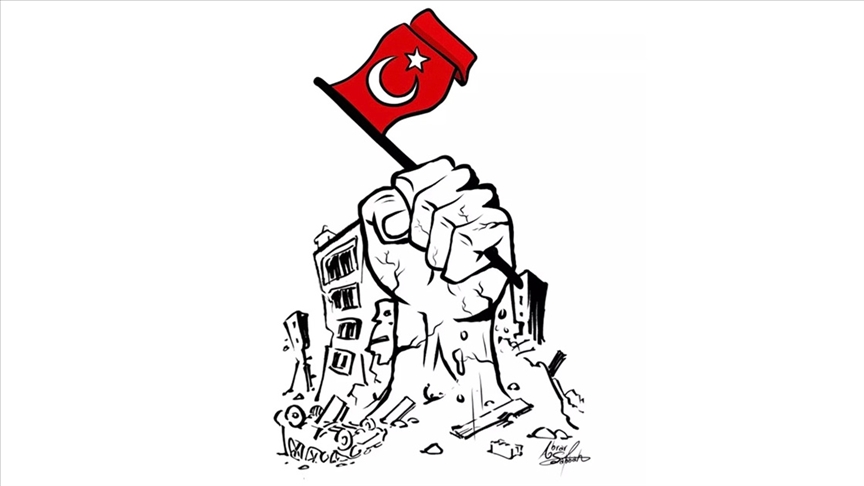Prophet Muhammad (pbuh) was born in the city of Mecca, which is located in the Hejaz region on the western part of the Arabian Peninsula. His exact date of birth is not known. The reason for this is that no particular calendar was used among the Arabs at that time. According to common opinion, he was born 50 to 55 days after the Incident of the Elephant in the month of Rabi' al-awwal on a Monday. Different estimates state that the date of birth of Prophet Muhammad was April 20, (Rabi' al-awwal 9) 571 or June 17, (Rabi' al-awwal 12) 569 Monday. The first one was suggested by the Egyptian astronomer Mahmud Pasha al-Falaki (1302/1885), and the second date was suggested by the famous Islamic scholar of our time Muhammad Hamidullah (2002).
The father of Prophet Muhammad was Abdullah bin Abdulmuttalib from the Banu Hashim branch of the Quraishis, and his mother was Amina, the daughter of Vahb bin Abdumanaf, who was a member of the Banu Zuhra branch of the Quraishi tribe. The Prophet was their only child.
The father of the Prophet, Abdullah, was a handsome young man admired by his friends. He had a beauty and brightness in his face that the other young men lacked. This is considered to be the "light of nubuvvat" (the light of prophethood, Nur-i Muhammadi) that belongs to Prophet Muhammad. Some accounts assert that when the father of Abdullah (the grandfather of the Prophet) Abdulmuttalib found the Zamzam Well and repaired it, some of the prominent members of the Quraishis tried to ridicule and humiliate him. At that time, Abdulmuttalib had only one son, Haris, and he was defenseless against them. He said that if he had ten sons he would sacrifice one as a votive. Later on, his wish came true and he had ten sons. In his dream, he was reminded of what he had sworn and Abdulmuttalib decided to draw lots among his sons to determine which one would be sacrificed. Abdullah, his youngest, was chosen. Abdulmuttalib decided to sacrifice him but many people opposed him, especially his daughters. While deciding how to perform his sacrifice, he received some advice that he should draw a lot between Abdullah and ten camels, which were sacrificial animals at that time. But again Abdullah was chosen. Abdulmuttalib continued to draw lots, each time increasing the number of camels by ten. When the number of camels reached 100, the camels were chosen and Abdulmuttalib sacrificed these 100 camels. In this way, he saved his beloved son Abdullah. Prophet Muhammad once said "I am the son of two sacrifices" referring to the sacrifices, both of which were prevented, of his father Abdullah and his ancestor Ishmael, son of Abraham. Abdullah refused many marriage proposals in his adolescence and eventually on his father's advice he married Amina, the daughter of Vahb. Abdullah was eighteen years old when he married. While he was on his way back from Syria, where he had gone for purposes of trade, he stopped in Yathrib (Medina) and visited Adi bin Najjar, his father's uncle. However, Abdullah became ill and died after staying with his relatives for a month; he was buried in Yathrib. When he learned of Abdullah's condition, Abdulmuttalib sent his elder son Haris to Yathrib, but Abdullah had died before Haris arrived in the city. The Prophet was thus born without a father. Most Islamic scholars believe that Abdullah did not suffer any pain in the afterlife and that he was granted deliverance as he did not live to see the prophethood of his son.
Amina, the mother of Prophet Muhammad, held a place of respect among the Quraishi girls. Her father Vahb was a prominent member of the Zuhra tribe. Abdulmuttalib and his son Abdullah asked for Amina's hand from her father, or according to another account, from her uncle Vuhayb. According to the traditions of those times, the first three days of the marriage the couple stayed in Amina's house. It is believed that the light of the prophethood on Abdullah's forehead was passed to Amina. Islamic sources state that some supernatural incidents happened during Amina's pregnancy. According to one account, Amina had a dream during her pregnancy and she was told in this dream that she would give birth to an important person and she was told to name this child Muhammad or Ahmad. Some accounts assert that Amina felt no pain during delivery. A famous account tells that Prophet Muhammad was born already circumcised. When he learned that his grandson had been born Abdulmuttalib held a banquet; during this banquet Abdulmuttalib named the baby Muhammad. Abdulmuttalib said that he had named him Muhammad so that people would remember him with kindness.
Subscribe to:
Post Comments (Atom)









No comments:
Post a Comment